ADHD Supplements for Adults
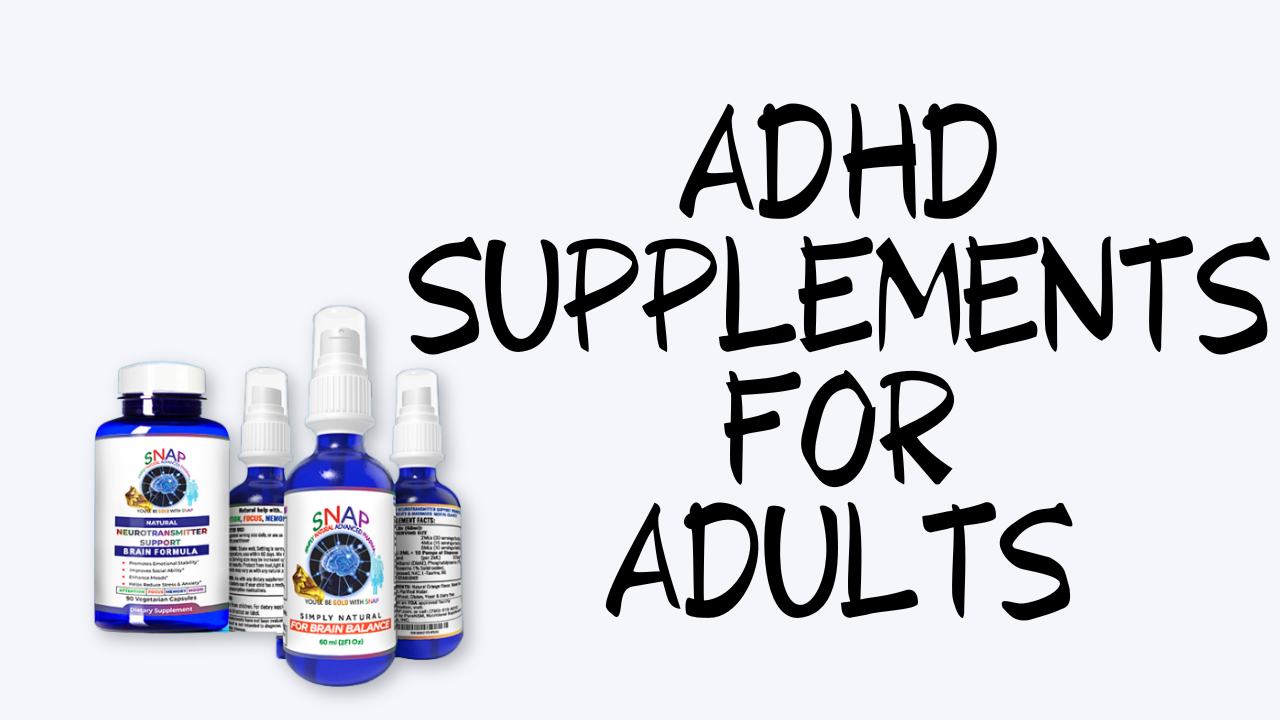
Attention-Deficit/Hyperactivity Disorder (ADHD) is a neurodevelopmental condition characterized by patterns of inattention, hyperactivity, and impulsivity that can extend into adulthood. Managing ADHD often requires a multi-faceted approach, including medication, behavioral therapy, and lifestyle modifications. Among these strategies, dietary supplements have gained attention for their potential to support overall brain health and mitigate symptoms.
If you're an adult dealing with ADHD, you may have encountered a plethora of suggestions regarding supplements that claim to enhance cognitive function and reduce symptoms. However, it's crucial to navigate these options with an informed perspective, understanding both their potential benefits and the necessity of consulting healthcare professionals before starting any new supplement regimen.
In this listicle, we will explore various supplements that are often discussed in the context of adult ADHD management. We will provide you with information derived from scientific research, expert opinions, and anecdotal evidence to help you make more informed decisions regarding your health and well-being.
Understanding ADHD Supplements for Adults
ADHD, or Attention Deficit Hyperactivity Disorder, is a neurodevelopmental disorder that affects both children and adults. Adults with ADHD often struggle with symptoms such as difficulty focusing, impulsivity, and hyperactivity. While medication is commonly used to manage these symptoms, many adults seek alternative options such as ADHD supplements.
ADHD supplements for adults are specially formulated to support cognitive function, enhance focus, and promote emotional balance. These supplements typically contain a combination of vitamins, minerals, and herbal ingredients that have been shown to have beneficial effects on ADHD symptoms. They work by supporting neurotransmitter function, improving brain health, and reducing inflammation.
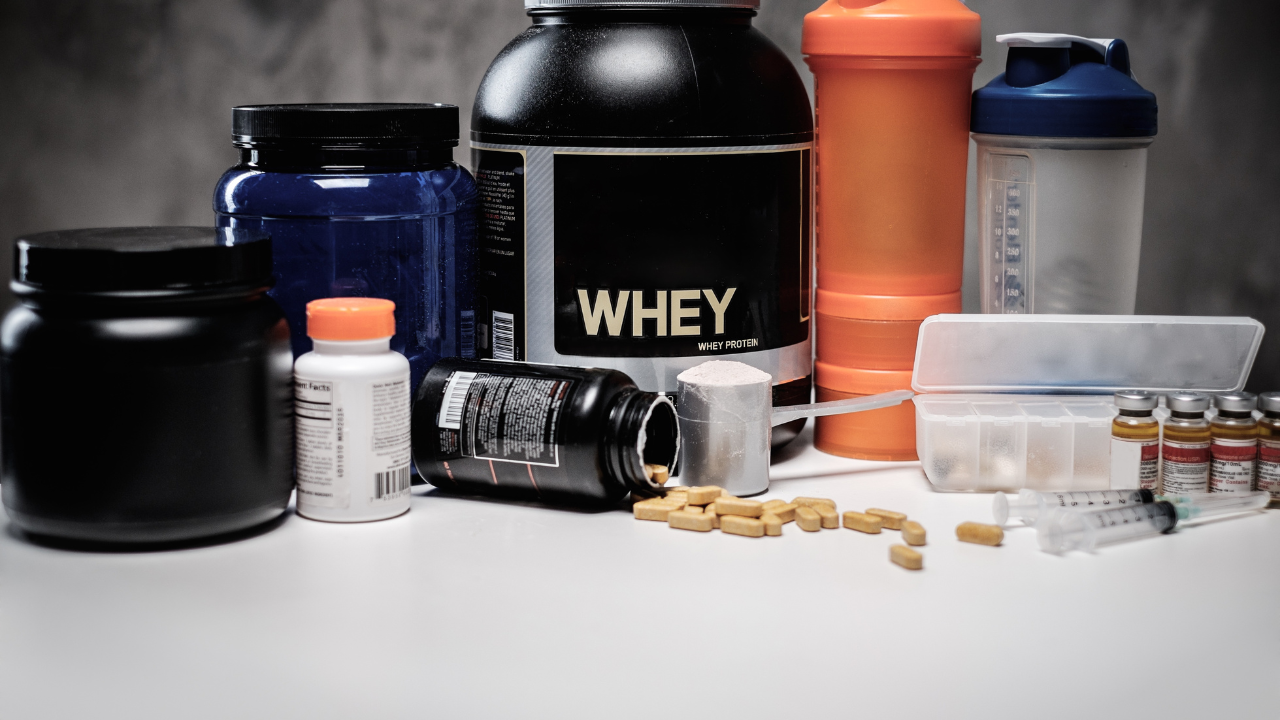
When considering ADHD supplements, it's essential to consult with healthcare providers to ensure safety and effectiveness. Each person's needs and symptoms differ, so personalized recommendations can lead to optimal results. It's important to remember that supplements are not a substitute for comprehensive ADHD management strategies, including lifestyle changes and behavioral therapy.
By incorporating ADHD supplements into a holistic treatment plan, adults with ADHD can improve their cognitive function, manage symptoms more effectively, and embrace mental clarity. Talk to your healthcare provider to find the best ADHD supplement options for you.
Overview of ADHD in adults
ADHD, or Attention Deficit Hyperactivity Disorder, is a neurodevelopmental disorder that affects both children and adults. While ADHD is commonly associated with children, it is important to recognize that adults can also struggle with this condition. Adults with ADHD may experience symptoms such as difficulty focusing, impulsivity, and hyperactivity. These symptoms can have a significant impact on various areas of their lives, including work, relationships, and overall well-being.

Adults with ADHD may face challenges in maintaining attention during tasks, organizing their thoughts or belongings, staying on schedule, and controlling impulsive behaviors. They may also struggle with managing their emotions and may have difficulties with self-esteem and interpersonal relationships. It is important for individuals with ADHD to receive proper diagnosis and support, as well as explore various treatment options, including lifestyle changes, behavioral therapy, and supplements, to effectively manage their symptoms and improve their quality of life.
Effectiveness of supplements for managing ADHD symptoms
Supplements can be a valuable addition to the treatment plan for adults with ADHD, as they can help manage symptoms and improve overall well-being. Several natural supplements have been studied for their effectiveness in managing ADHD symptoms.
The SNAP Brain Formula Supplement, for example, contains nutrients such as B6, DMAE, Rhodiola, L-Tyrosine, L-Taurine, Phosphatidylserine, and NAC, which have been shown to enhance cognitive function, improve focus, and support emotional regulation.
Omega-3 fatty acids have also shown promise in managing ADHD symptoms, as they play a crucial role in brain health and function. These fatty acids can help improve attention, reduce impulsivity, and enhance overall cognitive function.
Zinc supplements have been found to improve focus and attention in individuals with ADHD, as zinc is involved in neurotransmitter regulation. Vitamin B complex supplements can also support cognitive function and energy levels in adults with ADHD.
While individual responses may vary, considering supplements as part of a comprehensive treatment approach with the guidance of a healthcare professional can be a beneficial strategy for managing ADHD symptoms effectively.
SNAP Brain Formula Supplement
SNAP Brain Formula Supplement, offered by Simply Natural Advanced Pharma, is an over-the-counter supplement designed to help individuals with ADHD manage their symptoms effectively. This specially formulated supplement contains pharmaceutical-grade nutrients that have been shown to provide specific benefits for adults with ADHD.
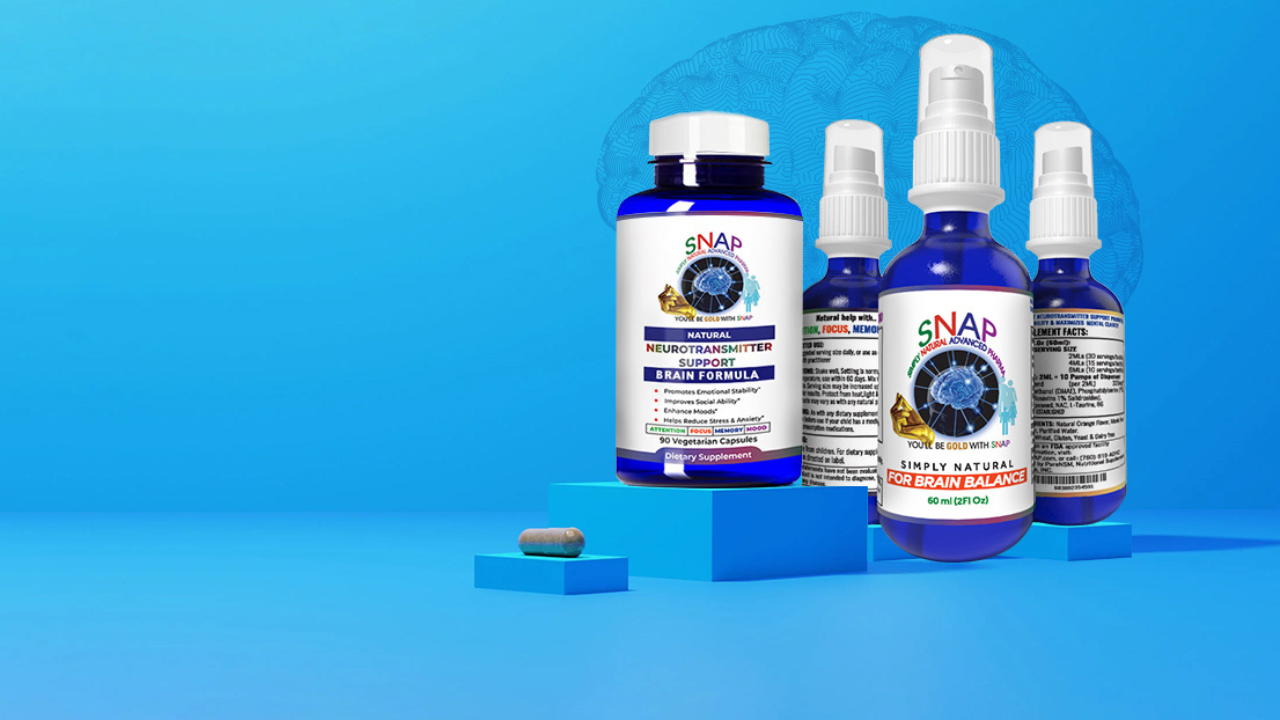
The SNAP Brain Formula Supplement includes ingredients such as B6, DMAE, Rhodiola, L-Tyrosine, L-Taurine, Phosphatidylserine, and NAC. These nutrients work together to improve focus, enhance cognitive function, and support emotional regulation. B6 and DMAE play a role in neurotransmitter production, while Rhodiola has been linked to reducing stress and fatigue. L-Tyrosine and L-Taurine help support brain health and improve mental clarity. Phosphatidylserine is involved in memory and cognitive function, while NAC acts as an antioxidant and aids in detoxification.
By incorporating the SNAP Brain Formula Supplement into a comprehensive ADHD treatment plan, individuals may experience improved cognitive performance, increased focus, and better emotional well-being. As always, it is important to consult with a healthcare professional before starting any new supplement regimen.
Omega-3 Fatty Acids
Omega-3 fatty acids are a type of healthy fat that is essential for brain function and overall wellbeing. They are known to have numerous benefits for adults with ADHD. Research suggests that omega-3s may help improve focus and attention, reduce hyperactivity, and support cognitive function in individuals with ADHD.
These fatty acids play a crucial role in the development and function of the brain, and they have anti-inflammatory properties that can help reduce brain inflammation often seen in individuals with ADHD. Omega-3s also support the production of neurotransmitters, which are essential for proper brain communication.
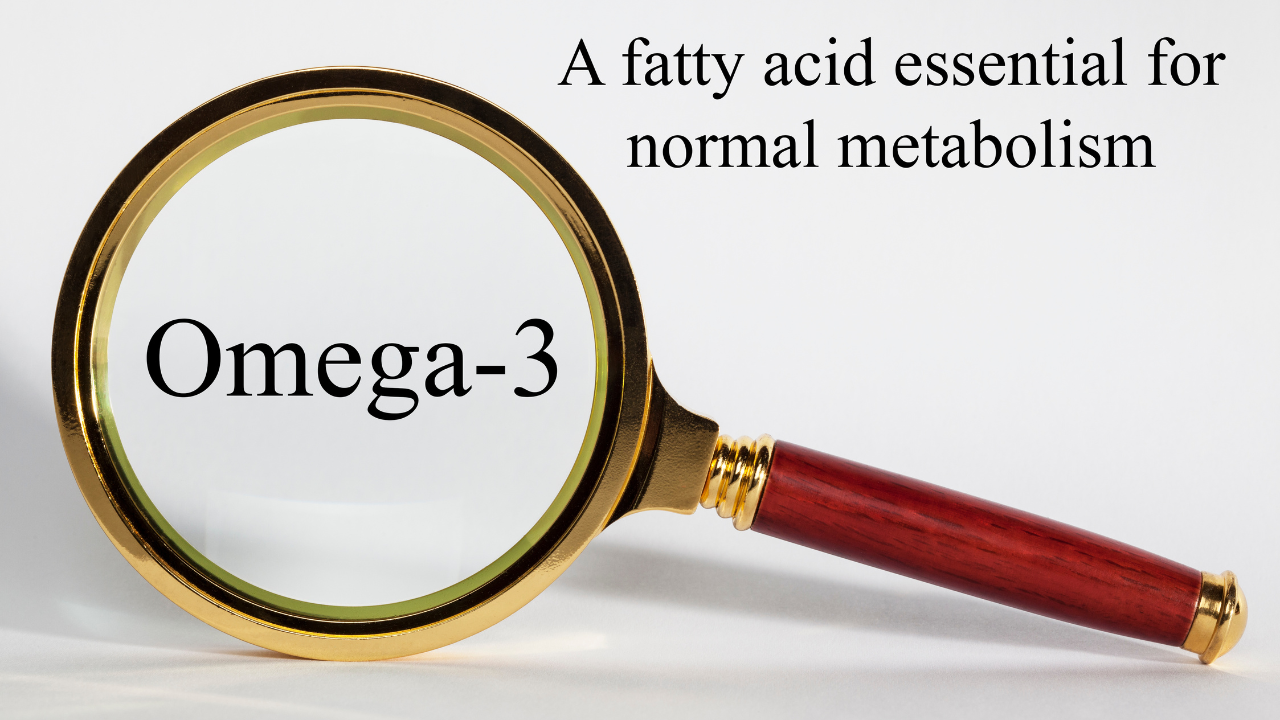
The recommended dosage of omega-3 fatty acids for adults with ADHD is between 1,000-2,000 mg per day. Common sources of omega-3s include fatty fish like salmon, sardines, and mackerel, as well as flaxseeds, chia seeds, and walnuts. If dietary sources are insufficient, omega-3 supplements can be considered as a convenient and effective option.
It is important to note that supplements are not a substitute for medication or professional guidance. Consulting with a healthcare provider is advised to determine the appropriate dosage and to ensure any potential interactions with other medications.
Benefits of Omega-3 for adults with ADHD
Omega-3 fatty acids have been extensively studied for their benefits in managing symptoms of ADHD in adults. Research suggests that these essential fatty acids can help improve focus, attention, and cognitive function in individuals with ADHD.
Omega-3s support optimal brain health by reducing inflammation and promoting proper neurotransmitter function. They have been shown to enhance brain development, particularly in areas responsible for attention and impulse control.
In addition to their cognitive benefits, omega-3 fatty acids also have positive effects on emotional regulation. They can help stabilize moods and reduce symptoms of depression and anxiety often associated with ADHD.
Furthermore, omega-3s have been found to enhance the effectiveness of medication for ADHD when used in conjunction. They can help improve medication tolerance and reduce side effects.
Overall, incorporating omega-3 fatty acids into the diet or taking supplements can be a valuable addition to the treatment plan for adults with ADHD, offering both cognitive and emotional benefits.
Recommended dosage and potential side effects
When taking ADHD supplements, it's crucial to follow the recommended dosage instructions provided on the product label or as advised by a healthcare professional. This ensures that you're taking the appropriate amount for maximum benefits and safety.
It's important to note that every individual may have unique dietary and health needs, so consulting with a healthcare provider is recommended to determine the right dosage for you.
While ADHD supplements are generally safe, there is a risk of potential side effects. These side effects can vary depending on the supplement and the individual. Common side effects may include gastrointestinal issues like nausea, vomiting, or diarrhea. Some individuals may also experience headaches, dizziness, or sleeplessness.
If you experience any severe or persistent side effects, it's essential to discontinue use and consult with a healthcare professional. They can provide guidance on adjusting the dosage or exploring alternative supplements.
Remember, safety should always be a priority when incorporating any supplement into your ADHD management plan.
Zinc Supplements
Zinc supplements are often recommended as a natural remedy for adults with ADHD. Zinc plays a crucial role in cognitive function, focus, and attention span. Research has shown that individuals with ADHD may have lower levels of zinc in their bodies, making supplementation beneficial.
Zinc is involved in the production of neurotransmitters like dopamine, which help regulate mood and attention. By increasing zinc levels, adults with ADHD may experience improved executive function and reduced impulsivity.
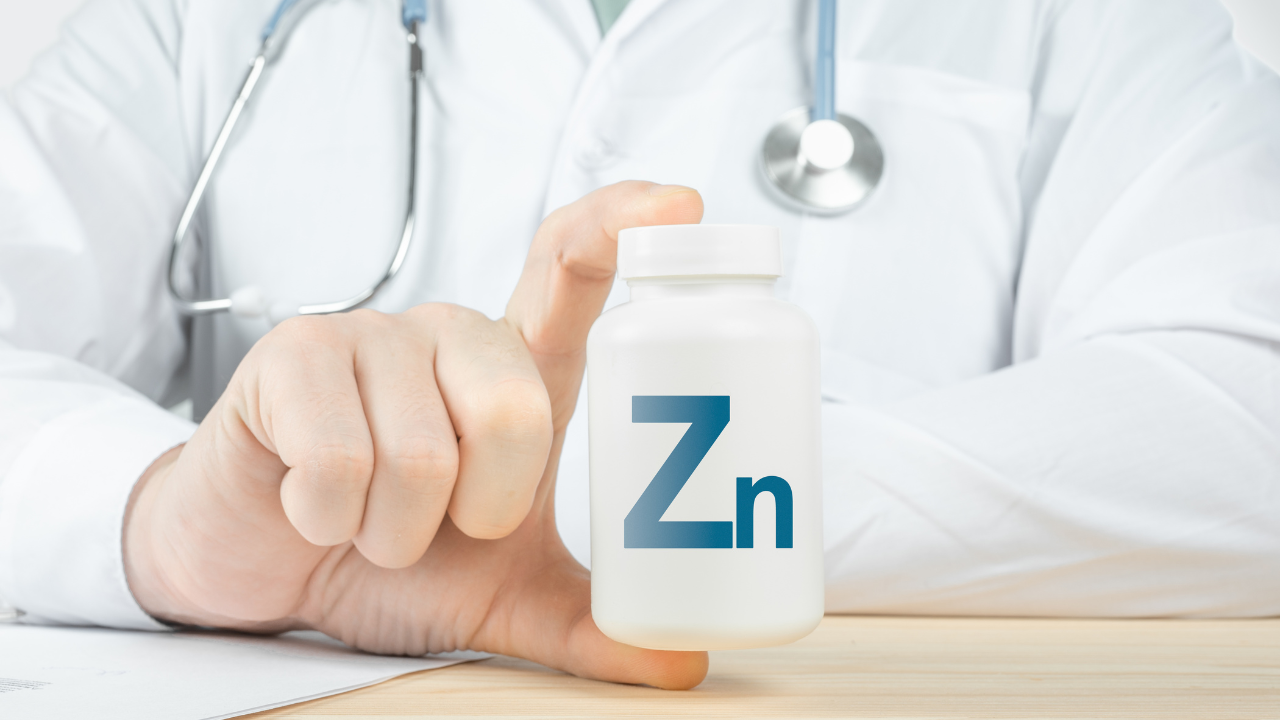
When choosing a zinc supplement, it is important to opt for a highly bioavailable form, such as zinc picolinate or zinc citrate, which are more easily absorbed by the body. The recommended dosage of zinc for adults with ADHD is around 25-30 mg per day.
While zinc supplements are generally safe, some individuals may experience gastrointestinal discomfort or nausea. It is important to consult with a healthcare professional before starting any new supplement regimen to determine the appropriate dosage and ensure it is safe for you.
Role of zinc in improving focus and attention
Zinc plays a crucial role in improving focus and attention in individuals with ADHD. It is an essential mineral involved in various biological processes, including neurotransmitter function and brain health. Zinc helps regulate the dopamine levels in the brain, which is important for maintaining attention span and cognitive function.
Studies have shown that individuals with ADHD often have lower levels of zinc in their bodies. By supplementing with zinc, adults with ADHD may experience improved executive function, reduced impulsivity, and enhanced cognitive performance.
Zinc also supports the functioning of the prefrontal cortex, which is responsible for decision-making and impulse control. Additionally, zinc is involved in the synthesis of proteins and DNA, contributing to overall brain health and development.
To optimize the benefits of zinc supplementation, it is important to choose a highly bioavailable form, such as zinc picolinate or zinc citrate. Consulting with a healthcare professional is recommended to determine the appropriate dosage for each individual.
Best forms of zinc supplements for adults with ADHD
When it comes to choosing zinc supplements for adults with ADHD, it is important to consider the form of zinc that offers optimal absorption and bioavailability. The two most commonly recommended forms of zinc for ADHD management are zinc picolinate and zinc citrate.
Zinc picolinate is a highly bioavailable form of zinc that is easily absorbed by the body. It has been found to be effective in improving focus and attention in individuals with ADHD. Additionally, zinc picolinate is well-tolerated and gentle on the stomach, making it a preferred choice for many adults.
Zinc citrate is another form of zinc that is easily absorbed by the body. It is known for its ability to support cognitive function and enhance attention span. Zinc citrate also plays a role in the synthesis of neurotransmitters, further contributing to its benefits for adults with ADHD.
When considering zinc supplementation, it is recommended to consult with a healthcare professional to determine the appropriate dosage and form of zinc for individual needs.
Vitamin B Complex
Vitamin B Complex is a group of essential vitamins that play a crucial role in supporting cognitive function in adults with ADHD. These vitamins, including B6, B9 (folate), and B12, are involved in neurotransmitter synthesis and function, which directly impact attention, focus, and mood regulation.

B vitamins are known to enhance the production of serotonin, dopamine, and norepinephrine, which are neurotransmitters linked to mood stability and attention span. Deficiencies in these vitamins have been associated with ADHD symptoms such as poor concentration and impulsivity.
To optimize the benefits of B vitamins for adults with ADHD, it is recommended to take a comprehensive B complex supplement that includes all the B vitamins in their active forms. This ensures better absorption and utilization by the body.
However, it is important to consult with a healthcare professional before adding any new supplements to your regimen to determine the appropriate dosage and to address any potential interactions with other medications.
Impact of Vitamin B on cognitive function in adults with ADHD
Vitamin B Complex is a group of essential vitamins that play a crucial role in supporting cognitive function in adults with ADHD. These vitamins, including B6, B9 (folate), and B12, are involved in neurotransmitter synthesis and function, which directly impact attention, focus, and mood regulation.
B vitamins are known to enhance the production of serotonin, dopamine, and norepinephrine, which are neurotransmitters linked to mood stability and attention span. Deficiencies in these vitamins have been associated with ADHD symptoms such as poor concentration and impulsivity.
Research has shown that supplementation with Vitamin B Complex can improve cognitive function and reduce ADHD symptoms in adults. In a study published in the Journal of Psychopharmacology, participants who received a B-vitamin complex supplement showed improved cognitive performance, including increased attention and reduced impulsivity.
To optimize the benefits of B vitamins for adults with ADHD, it is recommended to take a comprehensive B complex supplement that includes all the B vitamins in their active forms. This ensures better absorption and utilization by the body.
However, it is important to consult with a healthcare professional before adding any new supplements to your regimen to determine the appropriate dosage and to address any potential interactions with other medications.
Combination of B vitamins for optimal results
A combination of B vitamins can provide optimal results for adults with ADHD. These vitamins, including B6, B9 (folate), and B12, work synergistically to support cognitive function and manage ADHD symptoms effectively.
B6 is essential for neurotransmitter synthesis, especially dopamine and serotonin, which play a crucial role in attention and mood regulation. B12 helps with the production of red blood cells, which are important for oxygen transport to the brain and overall cognitive function. B9 (folate) is involved in DNA synthesis and repair, supporting brain health and neurotransmitter function.
Taking a comprehensive B complex supplement that includes all of these B vitamins in their active forms ensures better absorption and utilization by the body. This combination supports neurotransmitter balance, enhances cognitive performance, and reduces ADHD symptoms such as poor concentration and impulsivity.
It is important to consult with a healthcare professional to determine the appropriate dosage and to address any potential interactions with other medications before adding B vitamins to your ADHD management regimen. With the right combination and dosage, B vitamins can greatly contribute to improved cognitive function and overall well-being in adults with ADHD.
Herbal Supplements
Herbal supplements have gained popularity as alternative options for managing ADHD symptoms in adults. Some popular herbal remedies used for ADHD include Ginkgo biloba, L-Theanine, and Bacopa monnieri. These herbs have been traditionally used to support cognitive function and improve focus.

Ginkgo biloba is believed to enhance blood flow to the brain, supporting overall cognitive performance. L-Theanine is known for its calming effects, promoting relaxation and reducing anxiety often associated with ADHD. Bacopa monnieri, on the other hand, has been used to support memory and improve attention span.
It is important to note that while herbal supplements may offer potential benefits, scientific evidence for their efficacy in managing ADHD symptoms is limited. Additionally, herbal supplements may have interactions with medications or other health conditions, so it is crucial to consult with a healthcare professional before incorporating them into your ADHD management plan. Herbal supplements should be used with caution and under professional guidance.
Popular herbal remedies for ADHD in adults
Many adults with ADHD are turning to herbal remedies as alternative options for managing their symptoms. Some popular herbal remedies for ADHD include Ginkgo biloba, L-Theanine, and Bacopa monnieri. These herbs have been traditionally used to support cognitive function and improve focus.
Ginkgo biloba is believed to enhance blood flow to the brain, which can support overall cognitive performance. L-Theanine is known for its calming effects, promoting relaxation and reducing anxiety often associated with ADHD. Bacopa monnieri has been used to support memory and attention span.
It is important to note that scientific evidence for the efficacy of herbal supplements in managing ADHD symptoms is limited. Additionally, herbal supplements may have interactions with medications or other health conditions. Therefore, it is crucial to consult with a healthcare professional before incorporating herbal supplements into an ADHD management plan. Always prioritize safety and consult with a professional for personalized guidance.
Safety and efficacy of herbal supplements for managing ADHD symptoms
While herbal supplements may seem like a natural and appealing option for managing ADHD symptoms in adults, it is important to approach them with caution. The safety and efficacy of herbal supplements for ADHD management are still uncertain due to limited scientific evidence.
Herbal supplements are not regulated by the FDA in the same way as prescription medications, so the quality and potency of these products can vary. Additionally, herbal supplements can interact with medications or health conditions, leading to unwanted side effects or reduced effectiveness of medications.
It is crucial to consult with a healthcare professional before incorporating herbal supplements into an ADHD management plan. They can provide personalized guidance and assess potential risks and benefits based on your individual needs and health history.
Remember, herbal supplements should never be used as a substitute for prescribed medications without proper medical supervision. Always prioritize safety and work closely with a healthcare professional to ensure the best outcomes for managing ADHD symptoms.
Lifestyle Changes and Additional Strategies
In addition to considering supplementation, there are several lifestyle changes and strategies that can be helpful in managing ADHD symptoms in adults. These approaches can complement the use of supplements and provide a holistic approach to treatment.

- Incorporating a healthy diet: Consuming a well-balanced diet that is rich in fresh fruits and vegetables, lean proteins, and whole grains can provide essential nutrients that support brain health. Limiting processed foods, sugar, and caffeine may also help to reduce symptoms.
- Regular exercise: Engaging in regular physical activity promotes the release of endorphins, which can improve mood and focus. It is recommended to aim for at least 150 minutes of moderate-intensity exercise per week.
- Establishing a routine: Creating a structured daily routine can help individuals with ADHD stay organized and manage their time effectively. This can include setting specific times for waking up, meals, work or study periods, and leisure activities.
- Implementing organization strategies: Using tools such as calendars, to-do lists, and reminders can help individuals with ADHD stay organized and keep track of important tasks and deadlines.
- Seeking support: Connecting with a support group or therapist who specializes in ADHD can provide valuable guidance and coping strategies. They can also offer emotional support and understanding.
It is important to remember that everyone's experience with ADHD is unique, and what works for one person may not work for another. Consulting with healthcare providers, including psychiatrists and therapists, can help individuals with ADHD create a personalized treatment plan that incorporates supplements, lifestyle changes, and additional strategies to effectively manage their symptoms.
Incorporating diet and exercise for ADHD management
In addition to considering supplements, incorporating a healthy diet and regular exercise can be beneficial in managing ADHD symptoms in adults. A well-balanced diet that includes fresh fruits and vegetables, lean proteins, and whole grains provides essential nutrients that support brain health. Limiting processed foods, sugar, and caffeine may also help reduce symptoms.
Regular exercise promotes the release of endorphins, which can improve mood and focus. Aim for at least 150 minutes of moderate-intensity exercise per week. This can include activities such as walking, jogging, biking, or participating in sports. Exercise can also help reduce hyperactivity and impulsivity, while improving attention span.
Establishing a routine is also important for managing ADHD. Creating a structured daily schedule that includes specific times for waking up, meals, work or study periods, and leisure activities can help individuals stay organized and manage their time effectively.
Implementing organization strategies, such as using calendars, to-do lists, and reminders, can also be helpful in keeping track of important tasks and deadlines.
Lastly, seeking support from a therapist or support group who specializes in ADHD can provide valuable guidance, coping strategies, and emotional support. Overall, a combination of supplements, lifestyle changes, and additional strategies can help adults with ADHD effectively manage their symptoms.
Consulting with healthcare providers for personalized supplement recommendations
When it comes to managing ADHD symptoms in adults, it is important to consult with healthcare providers for personalized supplement recommendations. Healthcare providers, such as doctors or nutritionists, can assess an individual's specific needs, medical history, and current medications to determine the most appropriate supplements for their ADHD management plan. They can also evaluate any potential interactions or side effects that may occur from combining supplements with other medications.
Moreover, healthcare providers can offer expert advice on proper dosage and timing of supplements. They have the knowledge and expertise to guide individuals in selecting supplements that have been scientifically studied for their effectiveness in managing ADHD symptoms.
Remember, while supplements can be a helpful addition to ADHD management, they should not replace any prescribed medications or other treatment strategies without consulting with a healthcare provider first. By working together with a healthcare provider, individuals can create a comprehensive and personalized plan that addresses their unique needs and supports their journey towards better symptom management.
Take Charge of
Your Brain Health Today!
Shop Now!
Similar Articles:
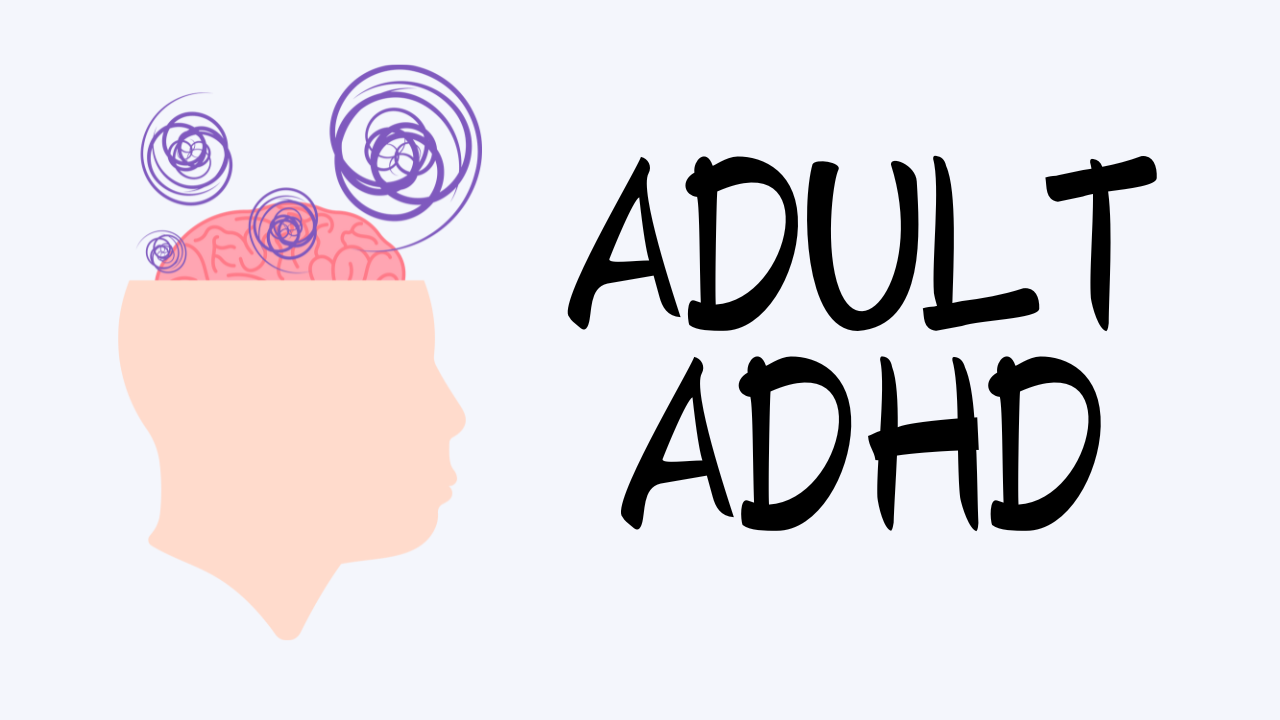
Adult ADHD
Step right into the realm of adult ADHD. If you have just received a diagnosis of Attention Deficit...
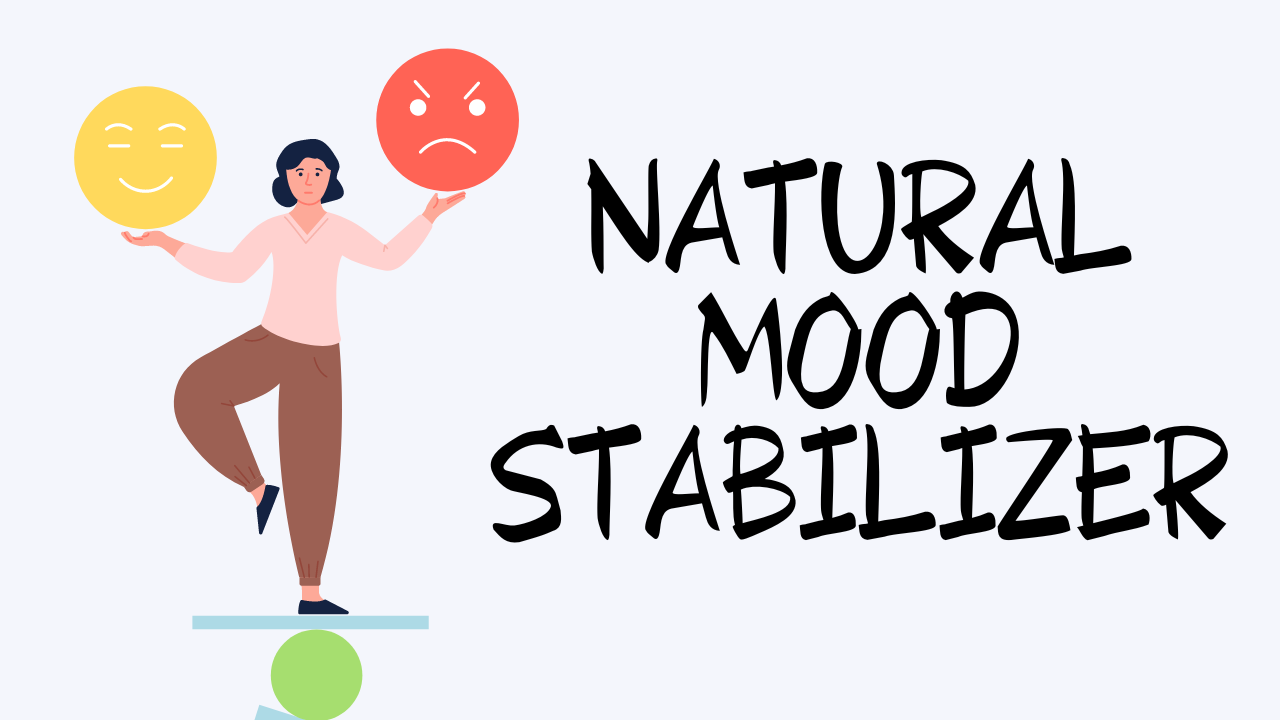
Natural Mood Stabilizer
In the fast-paced world we live in, maintaining emotional balance and well-being has become a paramount...
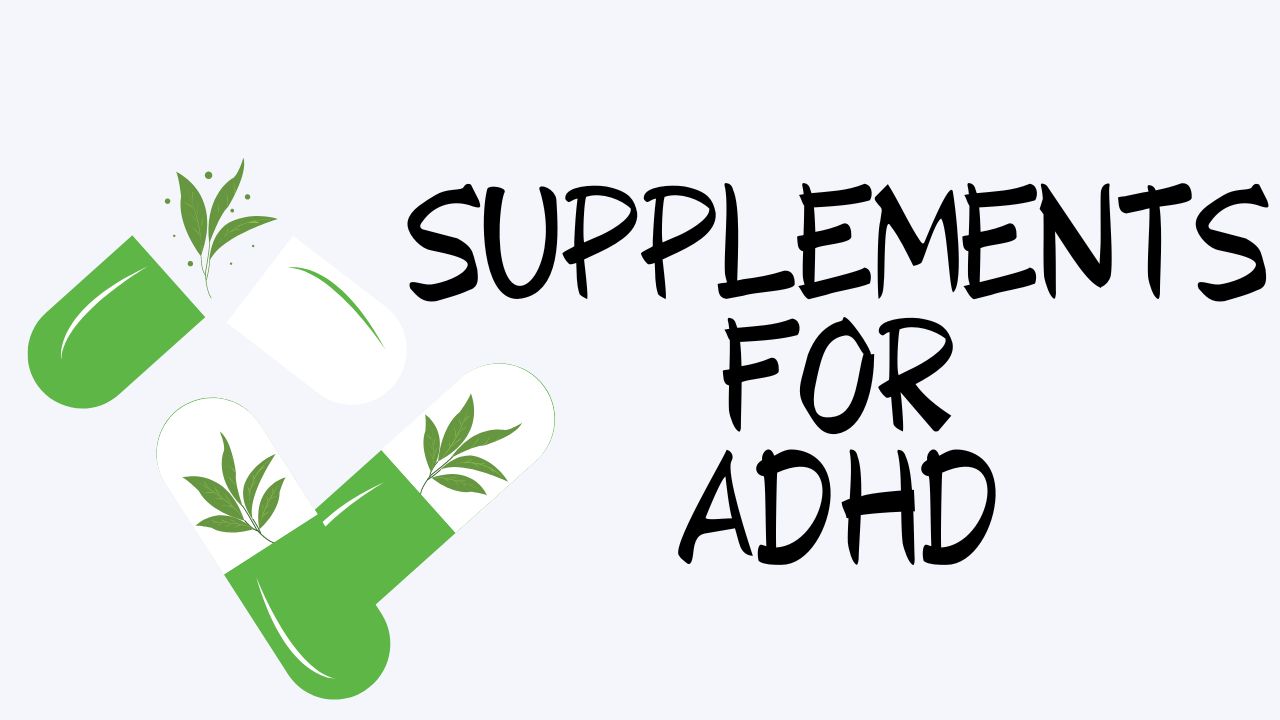
Supplements for ADHD
If you or your loved one has been diagnosed with Attention Deficit Hyperactivity Disorder (ADHD)...